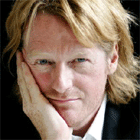 It’s good to see philosophers taking scientism seriously, and not just using the term as a bogey word. Massimo Pigliucci and Maarten Boudry are editing a forthcoming volume on scientism (Total Science, University of Chicago Press) and some of the essays are appearing on the internet.
It’s good to see philosophers taking scientism seriously, and not just using the term as a bogey word. Massimo Pigliucci and Maarten Boudry are editing a forthcoming volume on scientism (Total Science, University of Chicago Press) and some of the essays are appearing on the internet.
I’ll discuss here the draft chapter by Stephen Law (Heythrop College, University of London) who writes, discussing the proper scope of science:

As a philosopher, you might expect me both to want to carve out some intellectual territory for philosophers to occupy, and also to resist the thought that philosophical questions and problems are either non-questions and non-problems or else questions that will be answered and problems that will be solved, if at all, through an application of the scientific method. I won’t disappoint. However, while I acknowledge that there are limits to science, I will argue these limits typically offer little comfort to religious, New Age, and other folk looking for ways to immunize their beliefs against scientific refutation.
As that last sentence suggests, science has been so successful in generating knowledge that it can be threatening to other beliefs. Do other belief systems have an independent validity, in domains of knowledge that are simply not the business of science, or can a scientific approach prevail in all domains? As Law says, the desire to limit science often originates from a desire to indulge beliefs that derive from wishful thinking, without feeling any need to supply science-grade evidence to back them up.
Law discusses Stephen Gould’s proposal of “non-overlapping magesteria” of knowledge, of which science would be only one. In contrast, scientism is the wholesale rejection of NOMA and the declaration that knowledge is a unified whole, and that the basic ways of finding things out that we refer to as “science” apply universally.
Let’s also be clear that scientism is not the claim that science can answer all questions, it’s the claim that there are no independent “ways of knowing” that can answer questions that science cannot. It is easy to think of questions that are meaningful but which we will never be able to answer (I’ve previously given some examples, including: What did Julius Caesar eat on the day three days before his eighth birthday, and did he stroke a dog on that day?).
Law is sympathetic to much of scientism and I won’t address the many parts of his chapter with which I agree. I’ll focus only on two areas where Law dissents from scientism:
Is philosophy distinct from science?Law makes a case that “philosophy is essentially a non-scientific enterprise”, saying that “philosophical questions are for the most part conceptual rather than scientific or empirical”. As examples he gives two conceptual puzzles, one about family relationships at a family get-together, and the second about swimming in a river at different times: is it the same river?
Law explains that the puzzles “are essentially conceptual in nature” and can be solved by “armchair, conceptual methods” with no recourse to empirical evidence. Does that make them non-scientific? Law says yes: “there are perfectly good questions that demand answers, and that can be answered, though not by empirical means, let alone by that narrower form of empirical investigation referred to as ‘the scientific method’.”
I beg to differ, and would suggest that this misunderstands the nature of science. Science is indeed about empirical evidence, but that’s only the half of it. Science is just as much about concepts, or, to use the word more common within science, about models. Models are bundles of concepts that attempt to explain and synthesize empirical evidence into understanding. Science is thus an iteration between adapting models to better fit the data, and then obtaining more data to test the models.
Conceptual analysis is just as much part-and-parcel of that process as gathering empirical evidence. Clarifying the meaning of concepts and analysing their implications and mutual consistency is therefore just as important within science as in philosophy. One cannot properly compare models to empirical evidence unless one understands the models. Indeed, many scientists, such as theoretical physicists, spend their whole careers analysing and improving scientific concepts, and worrying about their consistency and their implications, rather than doing observation and experiment.
Ensuring that the models are all mutually consistent is often the hard bit. For example, a major current problem in physics is that the best model of large-scale behaviour, general relativity, is not consistent with the best model of small-scale behaviour, quantum mechanics, and a huge amount of effort is being expended in trying to make them consistent and unified.
Theoretical physics is “armchair conceptualising” (even if often aided by a computer), and indeed an archetype of the modern physicist is the wheelchair-bound Stephen Hawking. One of his biggest discoveries, the idea of Hawking radiation emitted by black holes, was arrived at by thinking about how the concepts of quantum mechanics would apply in the very-strong gravity near a black hole, and thus was conceptual analysis akin to that of philosophers; no-one has ever empirically observed Hawking radiation.
But, one might reply, the scientist’s concepts are still derived from empirical reality and are about empirical reality. Yes, true. Yet surely that is equally true of Law’s philosophical puzzles. The scenarios, such as relationships at a family get-together, and swimming in a river, are real-world examples, and the concepts being analysed (“family”, “father”, “swim”, “river”) are concepts developed and arrived at because they are useful in understanding the world around us, in the same way that we arrive at concepts of physics (“mass”, “gravity”, “radiation”).
Thus I would disagree with Stephen Law’s conclusion and argue that philosophy is not distinct from science, because conceptual analysis, and refining concepts and ensuring that they are coherent and consistent, are just as big a part of science as empirical observation.
Since conceptualising is a core part of the overall enterprise of “science”, philosophy is perhaps best regarded as being part of that broadly conceived scientific enterprise, which could equally be called by science’s older name of “natural philosophy”.
Philosophy is not distinct from science, it is a style of doing (broadly conceived) science, a tactic of asking certain sorts of conceptual questions in the same way that “experiment”, “observation”, “computational simulation” and “theorising” are all styles of doing science — and the ensemble works best with contributions from them all.
Mathematics and logic are other conceptual systems that, along with philosophy, are often regarded as distinct from science. And yet, these conceptual systems are still, ultimately, about the real world, adopted because they are useful for understanding the world, and thus they are akin to the conceptual systems that are part of science.
It can be argued that philosophers, logicians and mathematicians feel free to explore alternative realities, conceptual possibilities that are not necessarily instantiated in the observed world, but again the same holds in science. Often a theoretical physicist will explore the concepts themselves. That’s partly because a better understanding of the surrounding concepts helps in understanding those aspects that are physically instantiated, but also because we can often then find that the conceptual possibilities actually are instantiated.
The above case of Hawking radiation is one example. Dirac’s prediction of anti-matter, resulting purely from conceptual exploration, is another. The possibility of black holes, conceptualised long before there was observational evidence for them, is a third. Similarly, one can point to the mathematical exploration of non-Euclidean geometries, long before they gained applicability with Einstein’s relativity, and the concept of complex numbers, once a mathematical curiosity but now embedded in physics and engineering.
In his chapter, Law recognises much of the above, and does discuss the role of concepts within science. For example, he discusses Galileo’s famous thought experiment about dropping different-mass objects off the leaning tower of Pisa, showing that they must fall at the same rate by consideration of concepts alone, not by direct observation. Further, Law analyses the views of Richard Dawkins, and relates a discussion in which Dawkins argued similarly that conceptualising is a part of science, not distinct from it. Indeed Dawkins is a good example of a scientist whose major contributions to science have been “armchair conceptualising”, the thinking about concepts that is just as much a part of science as of philosophy.
Are morals outside the domain of science?In his second example of a topic outside science, Stephen Law declares that: “science alone can neither directly reveal facts about what one ought or ought not to do, nor allow us legitimately to draw conclusions about what we ought or ought not to do”.
Those who have read my other posts on morality will know how I’ll respond. He’s right! Science cannot do those things! But that is no problem at all for scientism.
Science can not inform us as to what is objectively morally right or wrong because there is no such thing as objective moral right, and the quest for it is fundamentally misconceived. Morals are value judgements that people make about how people treat each other. “It is moral” means “I approve” and “It is immoral” means “I disapprove”.
That means that there is no abstract “what one ought or ought not to do”, there are only instrumental oughts that derive from people’s aims and values. The fact that science cannot provide “conclusions about what one ought or ought not to do” is not the result of any limitation in science, it is because there is no such thing in the abstract. Given an aim or value one can say what one “ought to do” in order to achieve or fulfil that desire (an instrumental “ought”). But in the abstract the question makes no sense.
As soon as one accepts that morality is subjective one can see that there is nothing about morals that is outside the domain of science. Yet, the idea that there is no objective “morally good”, no objective “what we should do”, is so counter to many people’s intuitions that this conclusion will continue to be rejected by many.
Law doesn’t really consider this position in his account of how scientism might be defended. The closest he comes is in considering the possible stance that morals are “meaningless”. He says: “If [moral questions] are ultimately illegitimate or meaningless, the onus is very much on the defenders of scientism wishing to take this route to show that that’s the case”.
But, in the account of morals that I’m defending, it is only the idea of objective morals that is incoherent and meaningless (morals are values, and one cannot have a value without a valuer). But that doesn’t make morals meaningless; subjective morals are full of meaning and are of every importance to us, just as our other values are.
To illustrate this, suppose someone exclaims, on tasting a dish: “That is delicious!”. Superficially this purports to be a statement about an objective property of the dish (that it is delicious), but of course it really means: “I like it”. Despite the superficial reading being wrong and misleading, we don’t then claim that the statement “It is delicious!” is meaningless, we simply interpret it as a statement about the subjective feelings of the speaker. We should do the same regarding moral language.
As I see it, the burden of proof is on those claiming that there is some objective standing to moral values, that the value holds even in the absence of a valuer, and that the “ought” holds even in the absence of any sentient being pursuing an aim or goal. Establishing that concept as being outside science is something that could only be done once we know what the concept actually means, and so far — despite the best attempts of the majority of philosophers who hold to moral realism — we don’t.
If “it is morally good” doesn’t mean “I approve of it” then what does it mean? When Stephen Law says that science cannot tell us “what one ought or ought not to do”, what does the phrase “ought to do”, as used there, actually mean? These are fun questions to ask a moral realist. We ought to do it because it is morally good … and it is morally good because we ought to do it, and … but so far I’ve never come across an actual answer.
Advertisements Share this:- More





